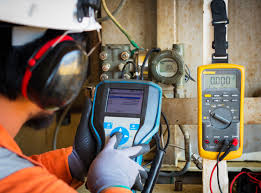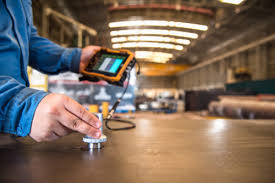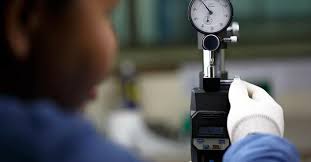Laboratory calibration services ISO certification plays a crucial role in ensuring the accuracy and reliability of measurements and test results. These services help in establishing and maintaining the accuracy of laboratory instruments and equipment, ensuring that they meet the stringent standards set by the International Organization for Standardization (ISO). In this article, we will explore the importance of laboratory calibration services ISO certification and the benefits it offers in guaranteeing accurate and precise test results.
Laboratory calibration services with ISO certification are essential for ensuring accuracy in the measurement and testing of equipment. These services involve the comparison of a device's performance to a known standard, thus providing confidence in the accuracy of the measurements recorded. ISO certification indicates that the calibration service provider has met international standards for quality management and technical competence, ensuring that the calibration process is conducted with a high level of accuracy and reliability. By using a laboratory calibration service with ISO certification, organizations can have confidence in the precision and reliability of their equipment, ultimately leading to greater accuracy in their testing and measurement processes.
Understanding the Importance of Laboratory Calibration Services ISO

Laboratory calibration services are crucial for ensuring the accuracy and reliability of scientific measurements. ISO (International Organization for Standardization) sets the standards for laboratory calibration services to guarantee that they adhere to internationally recognized best practices. Proper calibration of laboratory instruments is essential for producing valid and meaningful test results, which is especially critical in industries such as healthcare, pharmaceuticals, and environmental monitoring. Adhering to ISO standards for laboratory calibration services helps to maintain the quality and integrity of scientific data, ultimately contributing to the advancement of research and innovation.
The Benefits of Implementing Laboratory Calibration Services ISO

Laboratory calibration services ensure that all equipment and instruments used in scientific research and testing are accurate and reliable. Implementing ISO-standard calibration services can offer several benefits, including improved measurement accuracy, increased confidence in data and results, compliance with industry regulations, and cost savings through preventive maintenance. ISO calibration also helps laboratories demonstrate competence to regulatory authorities and customers, leading to enhanced reputation and credibility. Additionally, implementing ISO calibration services can help identify and address potential issues with equipment before they impact testing and research processes.
Ensuring Accuracy with Laboratory Calibration Services ISO
best calibration company Cairo

Laboratory calibration services ISO ensure accuracy by calibrating various instruments and equipment used in the laboratory. This process involves comparing the measurements of a device to a known standard to identify and correct any discrepancies. Calibration services help to maintain the reliability and accuracy of laboratory testing and ensure the validity of results. Compliance with ISO standards ensures that the calibration process is consistently performed and documented according to internationally recognized guidelines. This not only helps to meet regulatory requirements but also enhances the credibility of laboratory testing and the quality of research and analysis.
Choosing the Right Provider for Laboratory Calibration Services ISO
When choosing the right provider for laboratory calibration services ISO, it is important to consider several factors. Look for a provider with extensive experience in performing calibrations for the specific type of equipment or instruments used in your laboratory. The provider should also have a proven track record of accuracy and reliability in their calibrations. Additionally, consider the provider's accreditation, such as ISO 17025, which ensures they meet internationally recognized standards for calibration. Finally, consider the provider's turnaround time, customer service, and cost to ensure they meet your lab's specific needs and requirements.
Maximizing Efficiency Through Laboratory Calibration Services ISO
Maximizing Efficiency Through Laboratory Calibration Services ISO involves ensuring that all equipment and instruments used in a laboratory are accurately calibrated to international standards. This helps to guarantee the reliability and accuracy of test results, which is crucial in various industries such as healthcare, pharmaceuticals, and manufacturing. By outsourcing calibration services to an ISO-certified provider, organizations can streamline their processes, reduce downtime, and comply with industry regulations. Additionally, ISO 17025 accredited calibration labs can provide traceable and documented calibration reports for quality assurance and audit purposes. Overall, maximizing efficiency through laboratory calibration services ISO is essential for maintaining high standards of operation and product quality.
Compliance and Quality Assurance with Laboratory Calibration Services ISO
Compliance and quality assurance are critical components of laboratory calibration services ISO. Compliance refers to conforming to the set regulations, standards, and policies while performing calibration activities. This ensures that the calibration processes are carried out in a consistent, reliable, and accurate manner. Quality assurance, on the other hand, focuses on maintaining the quality and reliability of the calibration services provided. Laboratory calibration services ISO involves adhering to the specific requirements outlined in the ISO 17025 standard for testing and calibration laboratories. This standard specifies the general requirements for the competence of testing and calibration laboratories, covering areas such as personnel competency, equipment and measurement traceability, testing and calibration methods, quality assurance, and reporting of results. Adhering to ISO 17025 ensures that the laboratory calibration services meet international standards for quality and competence. This not only contributes to the reliability and accuracy of the calibration results but also enhances the credibility and trustworthiness of the laboratory's services. In summary, compliance with ISO standards and quality assurance are essential aspects of laboratory calibration services ISO. Adhering to these principles ensures that the calibration activities are performed with precision, consistency, and reliability, ultimately leading to accurate and trustworthy calibration results.
The Role of Laboratory Calibration Services ISO in Industry Standards
Laboratory calibration services ISO play a critical role in ensuring that industry standards are maintained and adhered to. These services help companies and organizations comply with regulatory requirements by providing accurate and reliable measurements and calibrations for their equipment and instruments. This is essential in industries such as healthcare, manufacturing, and environmental monitoring, where precision and accuracy are paramount. By following ISO standards for laboratory calibration services, organizations can demonstrate their commitment to quality and reliability, ultimately contributing to safer and more efficient operations.
